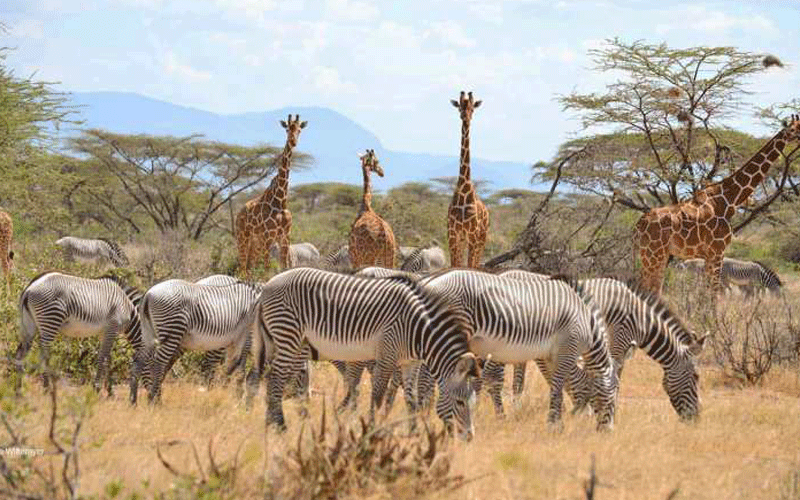Global wildlife numbers shrank by three-quarters in 50 years
By Milliam Murigi, October 15, 2024Over the last 50 years, Africa has lost 76 per cent of its monitored wildlife populations including mammals, birds, amphibians, reptiles, and fish, while the global average decline stands at 73 per cent, a new report has revealed.
Titled ‘Living Planet Report 2024,’ the report by the World Wide Fund for Nature (WWF), reveals that global freshwater populations experienced the severest decline, with an 85 per cent drop, followed by terrestrial ecosystems at 69 and marine ecosystems at 56 per cent.
Habitat loss and degradation, over-exploitation, climate change, pollution, invasive species and disease are the most reported threats to wildlife populations in Africa.
Mohamed Awer, the WWF-Kenya Chief Executive Officer, however contends that Kenya is at the forefront of making significant contributions to fight climate change and restore nature, having committed to the Global Biodiversity Framework and the Paris Agreement among other global and national commitments. The country’s National Biodiversity Strategies and Action Plans (NBSAPS) make ambitious targets and present a unique opportunity to mobilise capacity and financial resources in a coordinated manner.
According to him, despite the alarming overall decline in species population shown in the Living Planet Index, the population of priority species in Kenya such as the African lion, the African elephant, and the black rhino have stabilised or increased as a result of effective conservation efforts.
The report warns that the continued degradation of eco-systems could push the continent past critical tipping points. As eco-systems cross these thresholds, their ability to support both wildlife and sustainable development becomes compromised, with severe consequences for food security, water availability and climate resilience.
The stabilising populations of priority species offer hope that consistency in a truly whole-of-society approach and collaborative interventions will not only help save species from extinction but also ensure they thrive.
However, if we are to stop nature loss at the scale needed to avoid global and devastating tipping points, climate finance must flow from the global level to nations most-affected for their effective implementation of national commitments and action plans, and to the grassroots to build the resilience of indigenous and local communities bearing the biggest brunt of nature loss and climate change.
Flagship species
“The linked crises of nature loss and climate change are pushing wildlife and eco-systems beyond their limits, with dangerous global tipping points threatening to damage Earth’s life-support systems and destabilise societies. Although the situation is desperate, we are not yet past the point of no return. The decisions made and action taken over the next five years will be crucial for the future of life on Earth. We can restore our living planet if we act now,” says Kirsten Schuijt, Director General, WWF International.
Head of Conservation Programmes at WWF-Kenya, Jackson Kiplagat, also points to Kenya’s flagship species such as the African lion, the African elephant, and the black rhino as proof that continued interventions will stop decline and stabilise their populations.
“The rebounding of the black rhino in Kenya, from the 400s individuals recorded in the 1980s to the current 1,004 in 2023 is a huge milestone for this critically endangered species. This is a clear testament of the power of concerted and consistent efforts by all stakeholders,” he says.
Conference calls
According to the report, global conferences are critical opportunities for governments to step up the pace and scale of action. The Biodiversity COP16 (Conference of Parties) will be held from October 21 to November 1 in Cali, Colombia while the Climate COP29, to be held in Baku, Azerbaijan, will run from November 11 to 22. At these summits, governments must demonstrate bold action and leadership by producing and implementing more ambitious national climate and nature plans.
